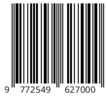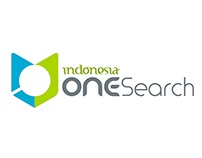Menggali Nilai Pendidikan Karakter dalam Cerita Rakyat Punden: Kajian Sastra Lisan di Kecamatan Dukun, Kabupaten Gresik
Abstract
This study examines the character education values contained in the Punden folklore of Dukun Subdistrict, Gresik Regency, aiming to uncover the potential of folklore as a medium for character education. The objects of the study are five Punden stories from the western, central, and eastern regions of the subdistrict. The research employs a qualitative descriptive method, specifically ethnographic research. The ethnographic approach is used to understand the values embedded in the five Punden stories, collected through interviews, recordings, and note-taking. The informants were determined using snowball sampling, and data validation was conducted through theory triangulation. Data analysis utilized descriptive and content analysis techniques. The findings reveal that the Punden stories are rich in character values based on religion, Pancasila, culture, and national education goals, with only three values—patriotism, environmental care, and love for reading—not identified. The emerging values include religiousness, honesty, tolerance, discipline, hard work, creativity, independence, democracy, curiosity, nationalism, appreciation of achievements, communicativeness, love of peace, social care, and responsibility. The results indicate that Punden folklore can serve as an effective means to develop students' character. The discussion highlights the importance of these values in character education and their potential as teaching materials. Therefore, it is recommended that the Punden stories from Dukun Subdistrict be utilized as teaching materials, with the development of appropriate teaching modules. The conclusion asserts that Punden folklore holds significant relevance for character education, supports the preservation of local culture, and suggests its inclusion in the educational curriculum.
Keywords
Full Text:
PDFReferences
Al-Ghozali. (2005). Pentingnya menghindari perdebatan dalam kehidupan bermasyarakat. Penerbit Keislaman.
Alfisyah, A. (2019). Onomastis: Sebuah studi folklor atas beberapa tempat di Kota Banjarmasin, Kalimantan Selatan. Padaringan: Jurnal Pendidikan Sosiologi Antropologi, 1(1), 1-15. https://doi.org/10.20527/padaringan.v1i1.3020
Ardhyantama, V. (2017). Pendidikan karakter melalui cerita rakyat pada anak sekolah dasar. Indonesian Journal of Primary Education, 1(2), 95-104. https://doi.org/10.17509/ijpe.v1i2.10819
Barnet, S. (2002). A short guide to writing about literature (9th ed.). Longman.
Byram, J. (2022). Do you trust me? Rigor and Information Power in Qualitative Research. The FASEB Journal, 36. https://doi.org/10.1096/fasebj.2022.36.s1.0i620.
Danandjaja, J. (1994). Folklor Indonesia: Ilmu gosip, dongeng, dan lain-lain. Pustaka Utama Grafiti.
Danandjaja, J. (1995). A comparative study of Japanese and Indonesian Folklores. Japanese Journal of Southeast Asian Studies, 33(3), 484-496. https://doi.org/10.20495/tak.33.3_484
Ekwent?, U. (2019). Oral Literature as a Tool for Conflict Resolution. , 1, 65-72. https://doi.org/10.33094/26410249.2019.13.65.72.
Goldman, D. (2005). Independence and emotional intelligence: A path to personal growth. Psychology Press.
Goleman, D. (2005). Emotional intelligence: Why it can matter more than IQ. Bantam Books.
Habibie, B. J. (2006). Democracy as a foundation for stability and prosperity in Indonesia. Democracy Press.
Hermawan, T. (2005). Konflik etnis di Indonesia: Kasus konflik antara etnis Jawa dan Madura di Pandaan. Universitas Indonesia Press.
Hidayah, A. K. (2017). Nilai pendidikan karakter dalam 27 cerita rakyat Nusantara. Jurnal Bahasa dan Sastra, 4(1), 19-24. https://jurnal.stkippgriponorogo.ac.id/index.php/JBS/index
Hong, S., & Yu, R. (2017). Comparison of the effectiveness of two styles of case-based learning implemented in lectures for developing nursing students' critical thinking ability: A randomized controlled trial.. International journal of nursing studies, 68, 16-24 . https://doi.org/10.1016/j.ijnurstu.2016.12.008.
Ilyas, M. (2022). Character Building in Language Teaching: An Analysis of the Learning Activities. Script Journal: Journal of Linguistics and English Teaching. https://doi.org/10.24903/sj.v5i2.1080.
Lapedes, D. N. (1974). McGraw-Hill encyclopedia of environmental science.
Lestari, D. A., Kholisah, W., & Supriyanto, M. R. J. (2024). Pentingnya Etika dan Moral dalam Pendidikan. Jurnal Pendidikan dan Sosial Humaniora, 4(3), 43-49. https://doi.org/10.55606/khatulistiwa.v4i3.3878
Listyarti, R. (2012). Pendidikan karakter dalam metode aktif, inovatif, kreatif, dan menyenangkan di sekolah. Erlangga.
Lizawati. (2018). Cerita rakyat sebagai sarana pendidikan karakter dalam membangun generasi literat. SeBaSa: Jurnal Pendidikan Bahasa dan Sastra Indonesia, 1(1), 19-26. https://doi.org/10.29408/sbs.v1i1.795
Madjid, N. (2017). Pluralisme agama dan kebangsaan. Paramadina.
Michalopoulos, S., & Xue, M. (2019). Folklore. Organizations & Markets: Formal & Informal Structures eJournal. https://doi.org/10.4324/9780203356432-18.
Napoleon, H. (1937). The importance of hard work in achieving success. Leadership Press.
Poerwadarminta, W. J. S. (2014). Kamus umum bahasa Indonesia. Balai Pustaka.
Rahman, H., Purwanto, W. E., Annisa, Z. N., & Rakhmadiena, N. K. (2022). Representasi pendidikan karakter berbasis lingkungan pada cerita rakyat Papua. Lingua Rima: Jurnal Pendidikan Bahasa dan Sastra Indonesia, 11(2), 51–59. https://doi.org/10.31000/lgrm.v11i2.6622
Spradley, J. P. (2016). The ethnographic interview. Waveland Press.
Sudaryanti, D. (2015). Pendidikan karakter dalam perspektif moral dan kebiasaan baik pada anak. Pustaka Mandiri.
Sudaryanti, N. (2015). Pendidikan karakter: Nilai-nilai luhur untuk generasi emas. Penerbit Akademika.
Sudikan, S. Y. (2001). Metode penelitian kebudayaan. Airlangga University Press.
Sunyoto, A. (2010). KH. Hasyim Asy'ari: Pengabdian sejati seorang ulama. Pustaka Tebuireng.
Suryanto, E., Sumarwati, A., Atikah, A., & Hadiyah. (2024). Cerita rakyat sebagai sarana berliterasi kearifan lokal: Pendekatan ekologi sastra. Indonesian Language Education and Literature, 9(2), 328–341. http://dx.doi.org/10.24235/ileal.v9i2.14802
Taufik, M. (2009). Nationalism in the context of unity and progress. Nationalistic Publishing.
Tharp, T. (2003). The creative habit: Learn it and use it for life. Simon & Schuster.
Ulfiyatin, L. (2003). Sastra lisan dan folklore. Balai Bahasa Yogyakarta.
Wahyu, I. (2013). Pendidikan karakter berbasis budaya lokal. Graha Ilmu.
DOI: https://doi.org/10.31002/transformatika.v9i2.9657
DOI (PDF): https://doi.org/10.31002/transformatika.v9i2.9657.g3566
Refbacks
- There are currently no refbacks.
Copyright (c) 2025 Khoirul Muttaqin

This work is licensed under a Creative Commons Attribution-ShareAlike 4.0 International License.


_(2)_.png)
.png)
_.png)
.png)
.png)















